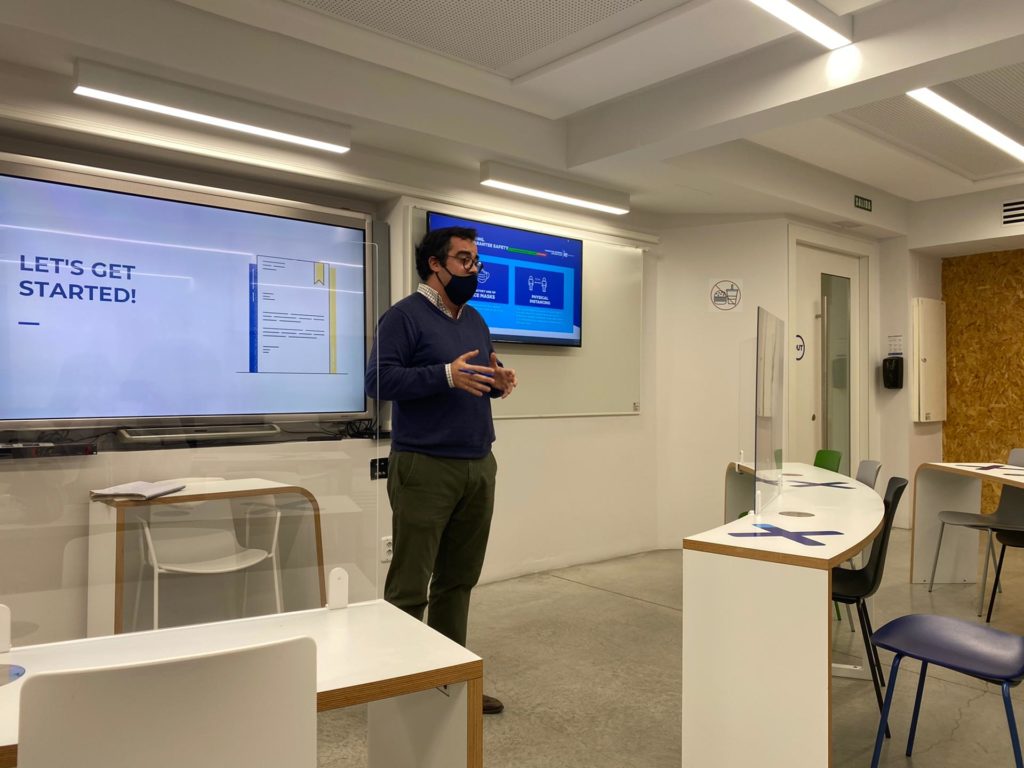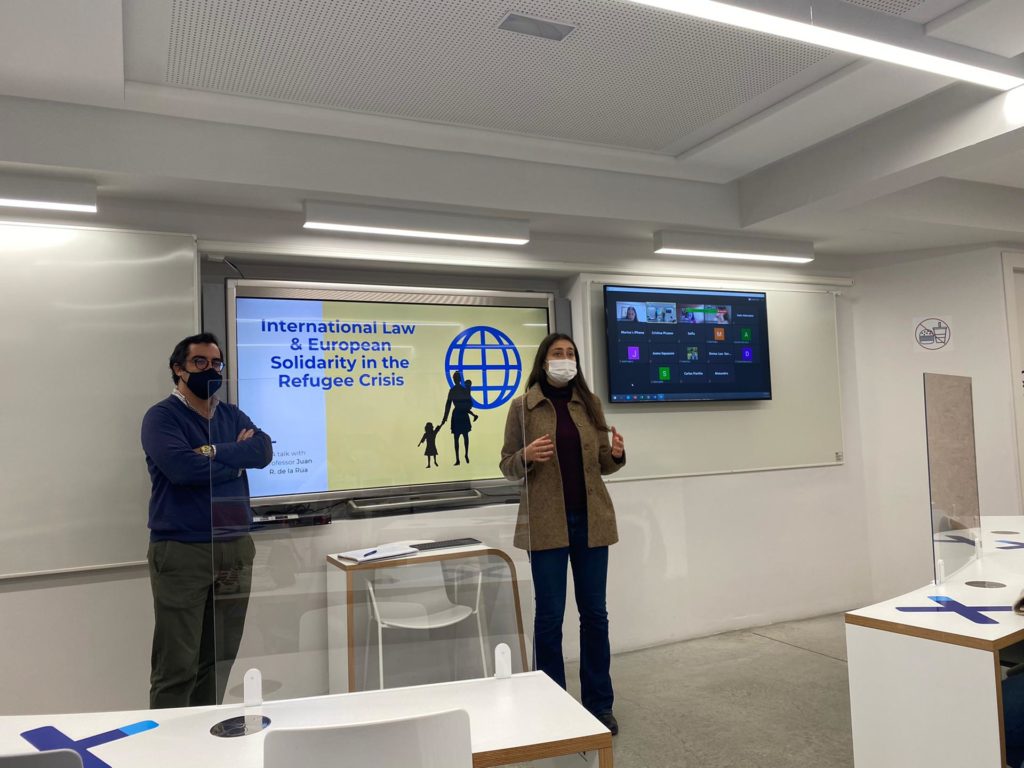Has Europe risen to the challenge of adequately addressing the refugee crisis? What role does international law play? These were some of the questions discussed at last month’s event organised by IE Campus 89. Professor Juan Rodriguez de la Rua was the protagonist of this enriching debate, where he shared his insights on such a delicate, engaging, and controversial topic.

After the event’s coordinators provided a brief background regarding the refugee crisis, Professor Rodriguez continued with a more profound explanation. Due to the limited amount of time, he focused his presentation on three main areas:
- The international and European law instruments regarding refugees.
- The European Union’s management of particulars in the refugee crisis.
- The proposals made by states and international organisations to improve the European system and its refugee treatment.
Throughout his presentation, Professor Rodriguez emphasised the differences between migrants and refugees. A migrant decides to go elsewhere from their country for a better life, whereas a refugee flees from their country because they are persecuted by certain motives and seek international protection. He explained that it is essential to avoid confusing these terms.
In the Geneva Convention, refugees were defined as individuals who cannot or will not return to their home country because they have well-founded fears that they might suffer persecution because of their race, nationality, membership to a social group, or political opinions. Professor Rodriguez stressed the latter, and explained that if a person does not comply with any of the five motives previously mentioned, they cannot be considered a refugee.
Rodriguez also emphasised the importance of the Geneva Convention, as it became the base of the European law on refugees. The convention determined what is understood as a refugee, which routes the refugees are entitled to, and the obligations of the states that receive refugees.
In the end, Professor Rodriguez said that he considered that the response of the European Union to the refugee crisis had not been effective. “Global problems can only be solved by coordination,” stated Rodriguez, “if we are a European Union, we need to unite.” He considered that short-term policies are not enough, and that more mid-term and long-term policies are needed.
Afterward, the audience was given the opportunity to ask questions and offer their opinion on the topic. The event ended with the coordinators thanking Professor Rodriguez for his participation and mentioning that more events of this nature are planned for this year. So, whoever is interested in these topics, stay alert, and do not miss the opportunity to participate in them!







